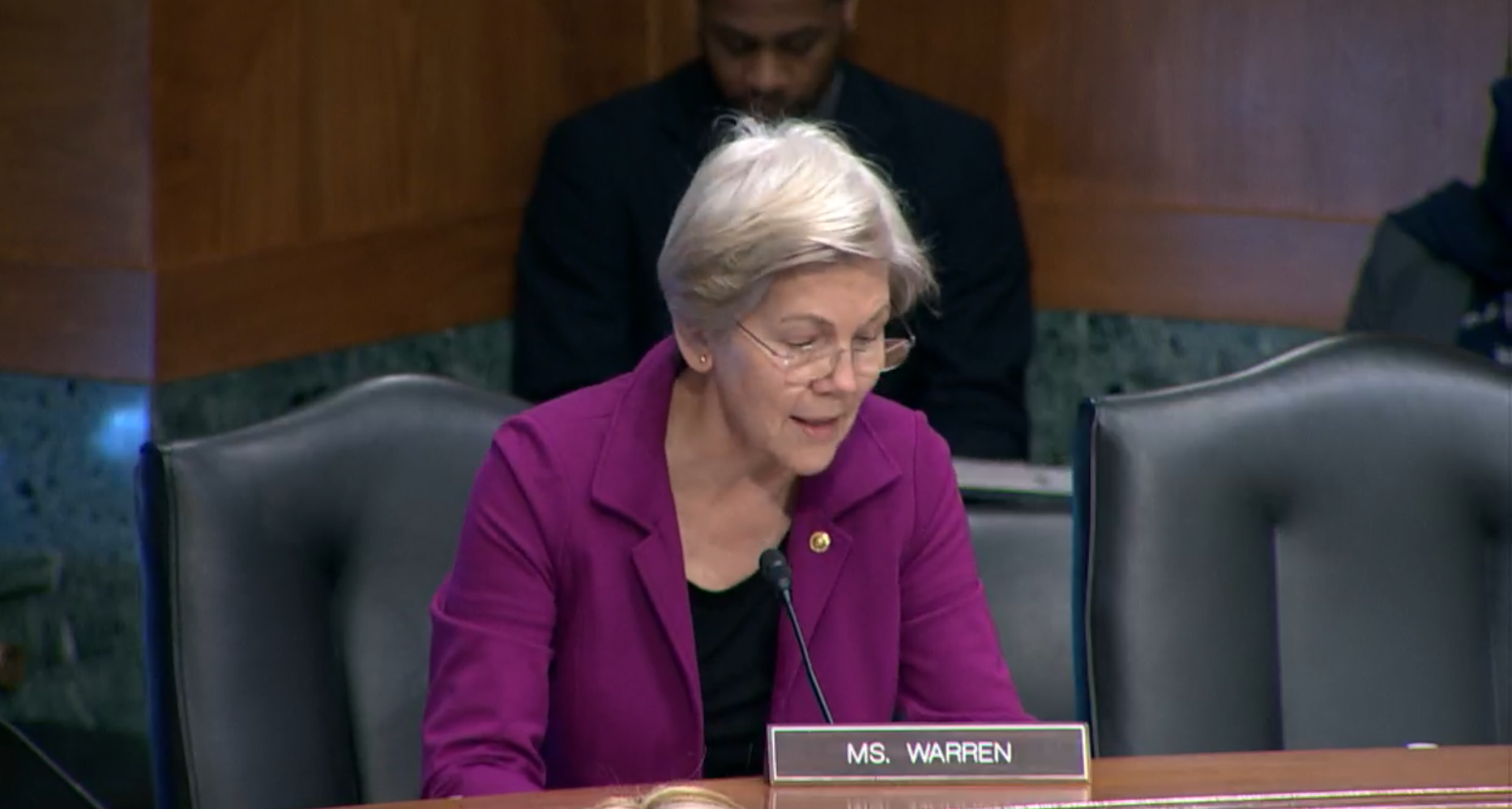A bi-partisan anti-money laundering (AML) bill that covers “decentralized entities” such as decentralized finance (DeFi) protocols and DAOs will soon be reintroduced to Congress, according to United States Senator Elizabeth Warren.
Warren, a vocal crypto critic, argued at the Feb. 14 Senate Banking Committee’s hearing entitled “Crypto Crash: Why Financial System Safeguards are Needed for Digital Assets” that the crypto community wants decentralized entities running on code to be exempt from AML requirements:
“In other words, they want a giant loophole for DeFi written into the law so they can launder money whenever a drug lord or a terrorist pays them to do so.”
Due to this, Warren said she would re-introduce the Digital Asset Anti-Money Laundering Act of 2022 that she first introduced on Dec. 15, 2022. It was read twice before being referred to the Senate Banking Committee and has received no further traction since.
If legislated as it was, the seven-page bill would have prohibited financial institutions from using digital asset mixers such as Tornado Cash, which are designed to obscure blockchain data.

It also would have resulted in unhosted wallets, miners, and validators being required to write and implement AML policies.
The Senator noted current AML laws “don’t cover big parts of the crypto industry,” and claimed crypto exchange ShapeShift took advantage of the lack of regulation when it restructured itself as a DeFi platform in July 2021, adding:
“They said we’re making this shift, quote, ‘to remove itself from regulated activity.’ Translation: Launder your money here.”
Warren claimed “big-time financial criminals love crypto,” and argued that crypto was “the method of choice for international drug traffickers,” North Korean hackers and ransomware attackers, adding:
“The crypto market took in $20 billion last year in illicit transactions, and that’s only the part we know about.”
These figures are backed up by a Jan. 12 report from blockchain analytics firm Chainalysis, which found that the total cryptocurrency value received by illicit addresses reached $20.1 billion throughout 2022.
Related: US lawmakers and experts debate SEC’s role in crypto regulation
According to a United Nations official speaking at a Counter-Terrorism Committee meeting in October 2022, cash is still the preferred choice for financing terrorists although they are beginning to turn to crypto more frequently.
North Korean hackers operating with Lazarus Group have also faced headwinds attempting to use crypto with the exchanges Binance and Huobi again freezing accounts, and in the process millions worth of crypto, linked to the notorious outfit.



Thank you very much for sharing, I learned a lot from your article. Very cool. Thanks. nimabi